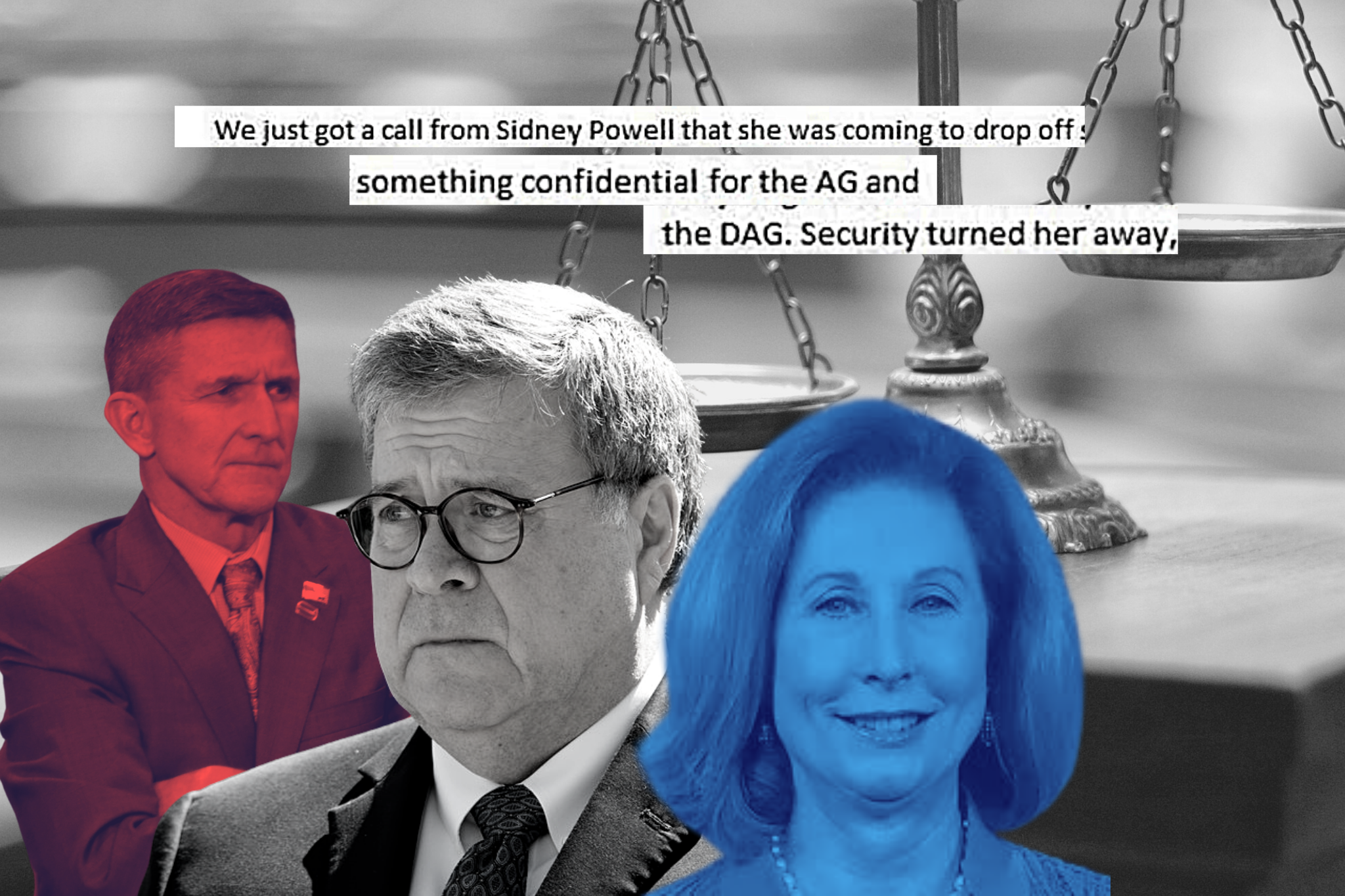Records Shed Light on Justice Department’s Handling of Roger Stone and Michael Flynn Cases
American Oversight obtained documents showing the DOJ sought to avoid Barr facing questions about Stone’s and Flynn’s cases, as well as contact between senior agency officials and conservative lawyer Sidney Powell, who represents Flynn.

As Donald Trump’s presidency sunsets, he seems increasingly eager to use his clemency powers to help political allies or even, some reports suggest, his own family and friends. Indeed, some observers have noted that Trump has been stingy with his presidential pardons — except when his political interests are at stake.
Records recently obtained by American Oversight provide new insight into the Justice Department’s handling of cases where Trump eventually came to the aid of two early allies, Roger Stone and Michael Flynn, who were both charged in connection with the investigation into foreign interference in the 2016 election. One email exchange shows Brian Rabbitt, a top aide to Attorney General William Barr, opposing and crossing out proposed questions about Stone’s and Flynn’s cases for an upcoming speaking event. Other emails show multiple contacts at key points between conservative lawyer Sidney Powell, who represents Flynn, and top Justice Department officials.
Flynn pleaded guilty to charges related to lying to investigators in 2017, but sought to withdraw his plea in January 2020, after having hired Powell as his lawyer months earlier. The Justice Department dropped charges against him in May, prompting one of the lead prosecutors of the case to step down. Just before Thanksgiving, Trump pardoned Flynn. Stone was sentenced to more than three years in prison in February after being convicted of seven charges stemming from attempts to obstruct investigations into foreign election interference, but Trump commuted his sentence on July 10.
The new documents were released in response to Freedom of Information Act litigation for the communications of Department of Justice officials, including Barr, about the agency’s handling of Flynn’s case. The records appear to show Powell — who has recently been in the news for her error-laden championing of dubious legal challenges in support of Trump’s unfounded election fraud claims — having a high level of access to top agency officials. They also show her advocating for Flynn in the days before her hiring by the former general was publicly reported.
On June 6, 2019, Powell sent an letter outlining an argument for dismissal of the charges against Flynn, which William Levi — who left the Justice Department earlier this month — sent to Rabbitt, then Barr’s chief of staff, on June 7 with the note “Here we go.” Shortly thereafter, Rabbitt shared it with then-U.S. Attorney for the District of Columbia Jessie Liu. (Liu resigned from the administration in February 2020, reportedly in part because of the president’s dissatisfaction with her initial handling of the Stone case.)
Also on June 7, an official from Barr’s office emailed Rabbitt about Powell having tried to drop by the agency to give the attorney general and the deputy attorney general a package, which suggested she was in direct contact with Barr. “We just got a call from Sidney Powell that she was coming to drop off something confidential for the AG and the DAG,” the official wrote. “Security turned her away, but then she called again and said she texted with the AG and he told her he was at Quantico and to call Theresa and she would arrange for the package to get dropped off from him.”
In an email sent on June 10 from Rabbitt to other officials, with the subject line “Sydney Powell,” Rabbitt referenced having spoken with her that day. Other messages from that same week show more evidence of contact between Powell and top agency officials. In an exchange between Powell and Assistant U.S. Attorney James Gillis about the foreign-agent criminal charges against Flynn’s former business partner, Bijan Rafiekian, Gillis sent over exhibits that he and Powell had discussed the previous evening. But Gillis denied Powell’s follow-up request for the full Foreign Intelligence Surveillance Act warrant application.
Other emails show Powell contacting the agency in early 2020, such as a January email about a motion to delay Flynn’s sentencing. There’s also evidence of internal deliberations about Flynn’s case, including a February exchange between U.S. Attorney for Eastern Missouri Jeff Jensen and Seth DuCharme, then a top aide to Barr, in which much of the content is redacted.
Finally, a series of emails from February 2020 show Rabbitt responding to proposed questions for a “Fireside Chat” interview hosted by the Business Council at the Kennedy Center. Rabbitt suggested edits that involved cuts to multiple questions involving Flynn or Stone, including crossing out questions wholesale and adding several unrelated questions about technology issues. For example, Rabbitt specifically rewrote or eliminated questions about White House influence on the reversal of sentencing recommendations for Stone, and deleted a question about the hundreds of former Justice Department employees who called on Barr to resign after his intervention in Stone’s case.
American Oversight will continue to investigate how Trump has deployed his presidential clemency powers and politicized the Justice Department, so the public can judge for itself the motivations behind his actions.